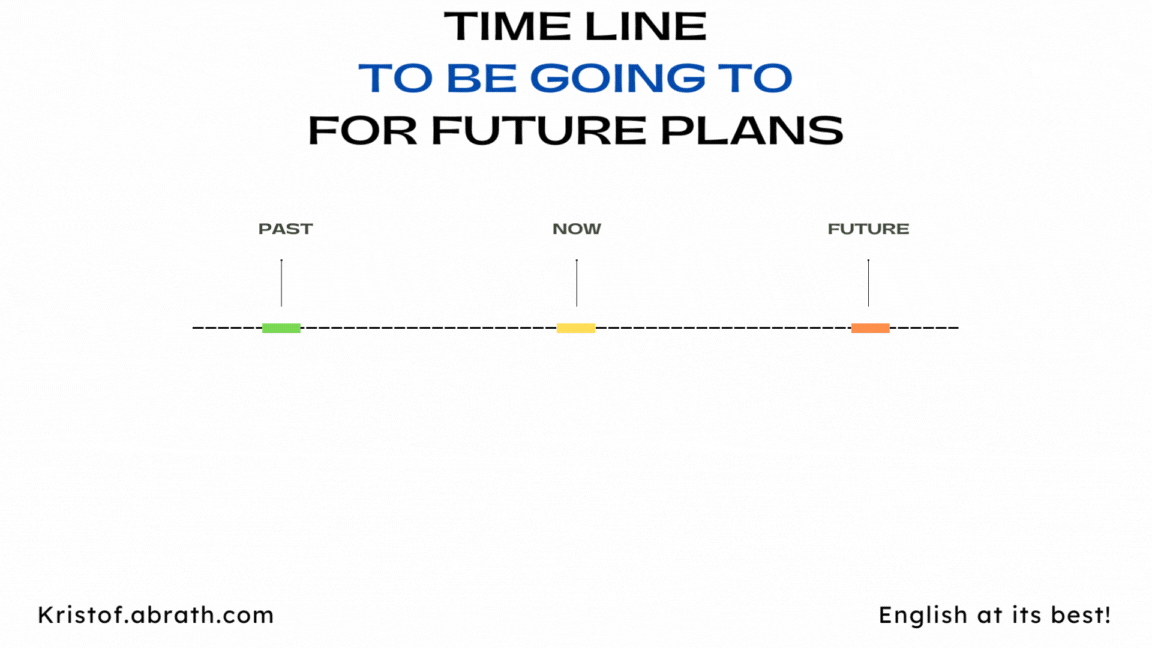To be going to
Future plans

Table of Contents
Overview
In this grammar section we will have a look at the To be going to, to talk about future plans
The video gives an overview of to be going to for future plans.
- It shows the form: how to construct to be going to positive, negative and question form and the exceptions. It also has a look at the placement of adverbs.
- It shows the meaning/usage: when and why to use to be going to
- It shows the pronunciation of to be going to: How you would pronounce different parts of to be going to.
Examples
A: Are you going to watch a movie later?
B: No, I’m not going to watch a movie, I’m going to have a bath.
Usage/ Meaning
How and when do we use to be going to?

To be going to is about a future plan.
- I’m going to buy a new car.
- We are going to book our holiday next week.
- I’m not going to study this afternoon.
These actions are not fixed yet, but you have the intention to do them. You have thought about it and it’s a plan. Things can still change but you are very sure.
Form
How do we make, form, construct to be going to?
Positive
Examples
- I am going to work later.
Positive:
- I am going to work
- You are going to work
- he/she it is going to work
- You are going to work
- They are going to work
- We are going to work
I/You/ She/ He / It /They/We Subject + to be + going to + infinitive (without to)
Practice
Negative
Examples
- I am not going to work this afternoon.
Subject | To be | Going to | infinitive |
I | am not | going to | work |
you | are not | going to | work |
he/she/it | is not | going to | work |
you | are not | going to | work |
we | are not | going to | work |
they | are not | going to | work |
Subject | To be short form | Going to | infinitive |
I | ‘m not | going to | work |
you | aren’t | going to | work |
he/she/it | isn’t | going to | work |
you | aren’t | going to | work |
we | aren’t | going to | work |
they | aren’t | going to | work |
Practice
Question
Examples
- Are you going to work?
To be | Subject | Going to | infinitive |
Am | I | going to | work |
Are | you | going to | work |
Is | he/she/it | going to | work |
Are | you | going to | work |
Are | we | going to | work |
Are | they | going to | work |
Practice
Short answer
- Yes, I am
- Subject + am /is are/.
- No, I am not
- Subject + am not/ isn’t/ aren’t
- Subject + am not/ isn’t/ aren’t
Pronunciation
How do we pronounce different parts to be going to.
Normally when speaking and using To be going to in AmE (American English) you contract the form and the sound changes slightly.
We’re going to play football later. /gonna/
I’m not going to do it. /gonna/
Gonna is not a word you can write! It is just a representation of the sound you hear of the contraction between going and to.
Time words
Which time words/expressions and adverbs can you use with to be going to?
To be going to can use future time words.
- I’m going to buy a phone tomorrow.
- Are we going to book our flights on Tuesday?
- We aren’t going to watch a movie this afternoon.
You can use tomorrow, next week, later, next year, in a few hours, this afternoon, Monday,...
There are also other time words and phrases and you can put them at the beginning or the end of your sentence.
Questions
Have a look at the questions and write your answers in the comments below. Also give us some more details about when, where, why,….
- What are you going to have for dinner?
- What are you going to do on your holiday?
- Are you going to play any sports this week?
- What are you going to do later today?
- Are you going to buy anything new?
- What are you going to do for your birthday?
- When are you going to study some more?
- Are you going to clean your house this weekend?
- What are you going to watch tonight?
- Are you going to play any computer games this week?
Spread the word
Kristof Abrath
Teacher, Trainer, Course Designer
Teaching in English on 4 different continents since 2006.



